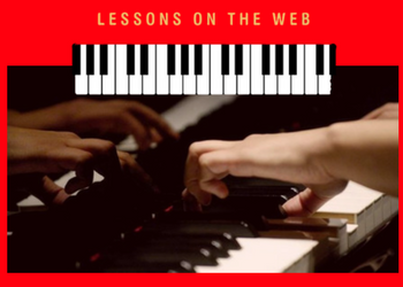|
When it comes to playing the piano, injuries may not be on the top of the list of things to be concerned about. After all, we're just sitting down moving our hands, fingers and arms over a keyboard, right? How much damage can we possibly do to ourselves just playing the piano? Think about what parts of your body are involved when you play the piano:
Wow..that's lot, isn't it? It's actually much more than we tend to think of until we sit down and play a lot. Just because we aren't wearing a helmet and running around on a football or soccer field, doesn't mean that we aren't athletes and that we don't incur injuries related to our own "sport" just as much as other athletes. Most injuries that pianists end up having come from tension and overuse (repetitive patterns) of our tendons in our hands and arms. Interestingly, more pianists and string instrument players report playing related injuries more than other instrumentalists, and more women encounter injuries than men. (Maybe just more women report the injuries than men). The most common signs of injuries reported are:
The common thread that seems to connect them all, is tension. It makes sense then, that the solution has to do with releasing that tension, and learning how to recognize it and even prevent it so we can keep playing comfortably. Why do we experience tension when we play the piano? That depends in part on each individual and what a person brings to the piano with him or her, when they sit down to play.
But our minds are not the only source of tension in our piano playing. We put quite a demand on some very small muscles in our arms to make our fingers curl up and perform the specific actions needed to play the music we see on the page. We have to keep our muscles constricted to a degree, just like we do when we sit up straight verses slouching over, in order to train them in what to do. Doing this too much, or incorrectly can cause:
OK - so let's "subdivide" this whole injury issue (meaning break it down) to one basic source: tension. Tension is caused by two different issues: Mental and emotional sources are related to our fears about: trying something new, fear of failing, fears about what others will think, and even fears about not being good enough. Physical sources are related to overuse of our muscles, playing while hurting, keeping our bodies tense and constricted while we sit at the piano, and even incorrect hand position during our playing. The best way to prevent injuries when playing your piano is to address the issue with focus on each of these two different sources separately. It's like learning how to play with both of your hands at the same time. Your first practice one hand, then the other hand, then you put the two together.
Every person experiences this type of inner dialogue in a unique way and you will find the best way to address and actually change the level that you experience them as you grow in this area. Tune in also to your body and try to be aware of and listen to what it is saying and doing when you approach your piano.
All of us experience these issues when we play the piano at some degree. What we don't want to happen is to have them control us to the point that we end up with and injury that prevents us from doing what we want and need to do in life, and on our piano. Go into this knowing that there will be areas that you can work on and fix a lot of, on your own. Prevention is the best goal here.
Injuries can be great teachers as far as showing us where we do need to make changes. But you can skip that class altogether with just a few minutes each day of awareness of what our bodies and minds are telling us. Stay Tuned to PianoLessonsOnTheWeb to learn much more and achieve your dreams of playing the piano! 7/16/2021 06:41:30 am
Hi Thank you for sharing this content. I have experienced all these pain and injuries in the past which led me to design a music stand for piano. I spent several months designing America's #1 Patented Ergonomic Piano Music Stand. You can visit my website to check this product. Thank you.
Reply
Leave a Reply. |
AuthorMost blogs written by Archives
June 2020
Categories
All
|


 RSS Feed
RSS Feed